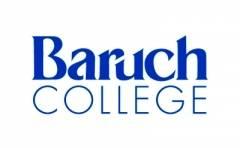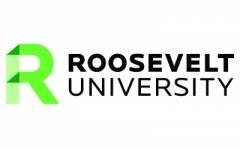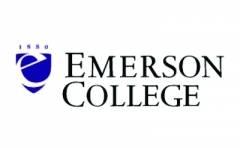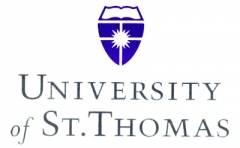Best Communications colleges in the U.S.
Would you love to see your byline in a newspaper? Does managing a company’s social media profile sound right up your alley? Were you a member of your high school student council who was always good at figuring out ways to promote activities or raise money?
If you answered “yes” to any of these questions, your abilities and interests might be well-suited to a career in the communications industry. Employers value people who can write, converse, persuade, explain, and create a positive impression — all skills developed in undergraduate and graduate programs in communications.
Earning a communication degree opens the door to a variety of possible occupations. Communication degree jobs exist in all kinds of industries because so many employers value people who can effectively convey information in written and verbal form. Clarity, persuasiveness, and creativity are just some of the skills developed through obtaining an online communications degree or an on-campus communication degree.
The term “communications” encompasses a wide variety of areas. When selecting a degree program, students should evaluate their individual interests and career aspirations. This reflection will help them decide among the many potential pathways communications majors can pursue. Some may decide to go broad by selecting a mass communications degree program. Others may opt for specialization such as advertising or corporate communications.
Best Communications colleges in the U.S. for 2026
Located within easy reach of Wall Street, Midtown, and the global headquarters of major companies, non-profits, and cultural organizations, Baruch presents access to a “real world” campus full of internship and networking opportunities. And like the Big Apple itself, the communications department at this public institution is bustling with activity.
The BA program in Business Communication alone enrolls more than 700 students. Another 200+ seek a BA in Communication Studies, a program that offers concentrations in interpersonal and group communication, intercultural and international communication, rhetoric and public advocacy, and digital communication and culture. Baruch also offers an MA in corporate communication.
Whether you’re looking for internships, cultural experiences, or great deep-dish pizza, you can’t beat going to school in the heart of downtown Chicago. The campus itself is full of opportunities, too. Roosevelt offers the following degrees:
- BA in Journalism and Media Studies
- BA in Digital Marketing, Advertising, and Public Relations
- Master’s in Marketing Communications
Faculty model classroom assignments after actual industry work, and capstone projects enable students to put the theories they learned in class into practice.
Students might first be lured to this private institution in Orange, Calif., because of the sunny skies and proximity to Disneyland and beaches. But Chapman offers a whole lot more than just great weather and recreational opportunities. Its School of Communication houses the following undergraduate and graduate programs:
- Bachelor of Arts in Communication Studies
- Bachelor of Arts in Strategic and Corporate Communication
- Bachelor of Arts in Global Communication and World Languages
- Master of Science in Health and Strategic Communication
- Ph.D. in Communication
Stevenson University offers 1 Communications degree programs. It's a small, private not-for-profit, four-year university in a large suburb. In 2023, 26 Communications students graduated with students earning 26 Bachelor's degrees.
Pennsylvania State University-Penn State Abington offers 1 Communications degree programs. It's a small, public, four-year university in a large suburb. In 2023, 24 Communications students graduated with students earning 24 Bachelor's degrees.
Walsh University offers 2 Communications degree programs. It's a small, private not-for-profit, four-year university in a large suburb. In 2023, 5 Communications students graduated with students earning 5 Bachelor's degrees.
Students interested in getting the most for their tuition dollar will be delighted to know that this private institution in Pittsburgh, Pa., has a national reputation as a good value. Those interested in service to others will be likewise pleased. Catholic missionaries known as Spiritans founded Duquesne in 1878, and the university remains committed to their values.
All students complete courses in information literacy, writing, essential questions, and ethical reasoning. Students wishing to study communications can choose to major in integrated marketing communication, corporate communication, rhetoric, or communication studies. Ambitious undergrads can participate in an accelerated program to begin a master of arts degree while simultaneously finishing up their BA.
The saying “Everything’s bigger in Texas” certainly could be applied to the University of Houston, a public institution enrolling more than 47,000 students. Big opportunities exist, too. The school presents an exceptional number of internship opportunities for all five of its undergraduate communications majors:
- Communication studies
- Health communication
- Strategic communication
- Journalism
- Media production
The real-world experience gained can be a ticket to employment. Or, if graduate studies are in your future, the school also offers a Master of Arts in Communication with the following concentrations:
- Health communication
- Journalism and mass communication
- Global and intercultural communication
- Public relations
Back in 1880 when the school was founded in Boston, the first department created at the institution was communications. Today, Emerson continues its support of the discipline through a broad major in communications studies as well as specialized majors in political communication, public relations, sports communication, journalism, marketing communication, and writing/publishing. An annual highlight for the department is the Southwick Recital Series, one of the oldest oratory recital series in the United States. In 2020, Emerson students for the first time joined distinguished faculty, alumni, and guests as presenters.
The stated mission of the communications department at this private institution in Saint Paul, Minnesota is to nurture excellence in three skills critical to modern employers:
- Speaking
- Writing
- Critical thinking
Many UST students hone those abilities through internships – from being a public affairs intern for the U.S. Army Corps of Engineers to serve as a communication specialist intern for baseball’s Madison Mallards. An annual highlight of the program is welcoming students and faculty from throughout the Upper Midwest to campus for the Undergraduate Communication Research Conference.
Top schools offering Communications degrees in the U.S.
Communications
What is Communications?
Before investing time and money in a communications degree program, students should have a solid idea of what the discipline involves. Simply put, communication involves transferring information from one individual or party to another. Communicating can be as basic as talking to another person or as intricate as writing an article read by millions.
The purpose of communication also varies. Some communications degree jobs involve presenting facts or explaining information. Other communication degree jobs focus on encouraging donations to a cause or gaining attention for a new product. Words themselves and how they are conveyed are vital to the receiver’s comprehension, interpretation, and feelings.
Certificate in Communications
While an undergraduate or graduate communications degree generally proves sufficient to work in a communications-related discipline, some people enhance their resumes by obtaining relevant certificates or other credentials. For instance, the Public Relations Society of America (PRSA) offers the Accreditation in Public Relations (APR). Passing this exam signifies professional expertise and dedication to the discipline, which can help one stand out in the job market or when seeking a promotion.
Associate Degree in Communications
Earning a two-year degree in communications demonstrates to employers that you possess writing and speaking skills beyond the high school level. This communications degree can make you a standout candidate for entry-level positions requiring good communication skills. People earning a campus-based or online communications degree often find work in customer service, hospitality, or administrative support.
Bachelor's Degree in Communications
Jobs in communication fields generally require at least an undergraduate degree. Graduate studies increase prospects and salary and may be necessary for consideration for higher-level positions. Some institutions of higher learning focus solely on undergraduate studies, whereas others include offerings at the graduate level.
Like bachelor’s programs in most disciplines, earning a Bachelor’s Degree in Communications takes about four years of full-time study. In addition to classes required for their major, students fulfill general education requirements that ensure they graduate well-rounded.
An undergraduate communications degree can help a person become a more viable candidate for entry-level positions in these fields:
- Journalism
- Advertising
- Corporate communications
- Digital media
- Public relations
- Broadcasting
- Similar fields
Because communication skills are so vital to a range of jobs, degree holders may generate interest from employers filling positions in other industries such as human resources, sales, and hospitality. The average salary for someone with a BA in Communications is $64,000 per year, according to PayScale.com.
Master's Degree in Communications
While a bachelor’s degree in communications can lead to various entry-level positions, earning a master’s degree in the field can lead to the managerial and supervisory roles that comes with significantly expanded earning potential. The Bureau of Labor Statistics reveals that public relations managers earn a median annual salary exceeding $118,000 while projecting 13% job growth over the next decade.
Students generally can complete a Master’s Degree in Communications in two years of full-time study. Part-time studies extend this amount but prove attractive to returning students who juggle education with job and family responsibilities. At some colleges, ambitious undergrads can start working toward a graduate degree in communications during their senior year and leave with both diplomas after five years of study.
A master’s degree helps people secure higher-level positions involving greater responsibility, leadership, decision-making, and salary. They might manage a public relations department or run an advertising campaign rather than carry out projects for others.
Some graduate students opt to study communication theory and research. This focus qualifies them for some academic positions as well as sets the stage if they want to go onto doctoral studies. PayScale.com reports the average yearly salary for someone with an MA in Communications as $65,000.
Communications Master’s Degree Salaries
Salaries for communications-related careers can vary significantly. That said, while professional experience can go a long way in determining annual earnings, earning a master’s degree in communications can expand career options and often leads to increased earning potential. Additionally, a graduate degree allows learners to further specialize their knowledge while often preparing them for managerial and supervisory positions.
According to the Bureau of Labor Statistics (BLS), public relations managers earn a median salary of $118,430—but that only tells part of the story. While the lowest 10% of earners pull in about $67,000 annually, the top 10% earn over $200,000 per year. When you combine experience, specialized knowledge, and managerial skills, graduates can expect to earn more in the long run. Additionally, advertising, promotions, and marketing managers earn a median salary exceeding $141,000 per year.
Communications Master’s Degree Job Projections
Graduates with an online master’s in communications are uniquely positioned to tackle various careers in an equally broad set of professional settings. Whether utilizing public speaking skills or demonstrating a nuanced understanding of organizational communication, communications grads gain the skills needed to convey ideas and craft messaging that can benefit careers spanning from marketing to public relations.
In addition to above-average salaries, graduates from a Master’s in Communications program often enter careers that the BLS projects will grow over the next decade. Public relations and marketing managers can anticipate their field to increase by 10% between 2020 and 2030. Further, market research analyst roles are projected to expand by 22% over the next decade—this translates to a growth of over 163,000 jobs.
Communications Master’s Degree Career Paths
Career paths for communications grads can vary pretty wildly. Whether they find a home in public, private, or non-profit sectors, these professionals rely on carefully honed skills utilized pretty much everywhere. In the graphic below, we highlight several communications-based careers along with their median annual salaries and projected job growth.
| Career | Salary | Projected Job Growth (2020-2030) | About the Position |
|---|---|---|---|
| Public relations specialists | $62,810 | 11% | Public relations specialists handle various tasks when assisting clients with their communication needs. These workers tackle responsibilities spanning from drafting speeches to evaluating promotional and advertising initiatives. |
| Market Research Analyst | $65,810 | 22% | These professionals examine market conditions, forecast marketing trends, and compile and present complex data in an understandable way. |
| Advertising, promotions, and marketing managers | $141,490 | 10% | These professionals oversee various staff and the production of communications plans and other media. Alongside supervisory responsibilities, these managers manage client relationships, negotiate contracts, and oversee promotional and advertising campaigns. |
| Public relations and fundraising managers | $118,430 | 13% | These communications professionals develop client image and brand, oversee promotional initiatives, and help their clients communicate effectively. |
Doctoral Degree in Communications
The top level in communication studies is a doctorate. Earning this degree generally takes three or four years of full-time study, and admission can be competitive. Places oftentimes require candidates to already possess a master’s degree before applying. Programs themselves consist of core communications classes, courses in a specific area of interest within communications, and sometimes classes in outside disciplines such as social science and humanities. The final requirement is a dissertation, which combines accumulated knowledge with original research and ideas.
Many who receive a PhD go on to a career in academia as a professor and researcher. Others bring their advanced skills to workplaces, where they might oversee entire communications departments or hold executive positions. While compensation varies considerably by job, the average yearly salary for someone with a Doctorate in Communications is about $73,000 per PayScale.com.
What Can I Do with a Degree in Communications?
The term “communications” encompasses a wide variety of areas. When selecting a degree program, students should evaluate their individual interests and career aspirations. This reflection will help them decide among the many potential pathways communications majors can pursue.
Types of Communications Degree Programs
Some students choose to major in the broad field of “communication studies.” They graduate with a wealth of written, verbal, and critical-thinking skills that can be applied to the workforce. Other students know they want to put a greater emphasis on certain skills especially needed for their future job, such as learning about crisis intervention and developing brands to enrich the potential for a career in public relations.
Some schools award a BA or a BS in Communications, but students can choose to specialize within the program. Other schools award degrees directly in specific areas, such as a BA or a BS in Journalism.
Communications Degree Specializations
There are several specializations within the field of communications. Niche areas include often seen in collegiate communication programs include:
- Journalism
- Advertising
- Public relations
- Media/news broadcasting
- Corporate communication
- Intercultural communication
- Digital communication
- Marketing communication
- Strategic communication
- Sports communication
- Political communication
- Health communication
- Rhetoric
Communications Degree Coursework
Coursework varies by school and by a student’s specific area of interest. However, some classes are generally part of the curriculum for people studying communications. These may include:
- Public speaking
- Interpersonal communication/human communication
- Media writing
- Web design/development
- Copy editing
- Research methods in communication
- Ethics
Skills Learned in a Communications Program
Graduates of communications programs are typically also strong writers. They know how to convey ideas in interesting, clear ways that gain attention and inform readers. Degree-holders also possess solid speaking skills. Whether talking one-on-one or to a large group, their mastery of the spoken word allows them to converse and present effectively.
Depending on the specialization, students acquire a range of other abilities that serve them well for future employment and/or pursuing a higher-level degree. These may include:
- Copy-editing
- Headline writing
- Print and web layout
- Crisis management
- Brand development
- Conflict communication (negotiation strategies, problem-solving tactics, etc.)
- Business writing (resumes, professional memos, etc.)
- Digital photography
- Web design
- Reporting
- Creating an on-air presence
- Play-by-play announcing
- Broadcast producing
- Creative decision-making
- Speech writing
- Social media account management
- Polling
Earning an Online Communications Degree
Whether you’re a communications professional working in the field or simply interested in pursuing a new career, an online master’s degree in communications allows students to enhance career options and increase earning potential. In addition to seeking a communications degree through a traditional program, plenty of options exist to earn one via online studies. Oftentimes, a college’s online program follows the same curriculum and employs the same faculty as its on-site counterpart. Students are held to high standards and graduate with skills employers crave.
Sometimes, accelerated options allow online students to complete their studies at a faster pace. Being able to live at home and avoid commutes saves money. Many who pursue a communications degree online like the flexibility afforded, as classes and homework can be scheduled around professional and personal obligations.
Different from an undergraduate communications degree, a master’s program will enable learners to narrow their academic focus toward areas like corporate, marketing, and strategic communications. Usually requiring around 30-credits to graduate, online students typically have the flexibility to complete academic requirements while keeping up with personal and professional obligations. Upon graduation, students have access to various careers, from public relations managers to marketing communications managers. Continue reading as we spotlight some of the best online Master’s in Communications.
Types of Online Master’s in Communications Degrees
Specific academic requirements within a Master’s in Communication can vary between programs, and academic concentrations add another consideration for students when deciding which degree is right for them. Standard communication master’s programs cover topics like:
- Mass communication
- Strategic communication
- Communication and public relations
We highlight some academic concentrations later on this page.
How Long Does it Take to Get an Online Master’s in Communications Degree?
The time it takes you to earn a Master’s in Communications is determined by various factors. In general, a Master’s in Communications requires you to complete 30 credits of coursework, and full-time students traditionally complete this academic track in 15-24 months. Enrolling as a part-time learner can significantly increase the amount of time you’ll spend in grad school.
Undergraduate students who are confident in their desire to earn a Master’s in Communications can sometimes enroll in an accelerated program where bachelor’s and master’s requirements can be completed in just five years.
Online Master’s in Communications Degree Specializations
As opposed to an undergraduate degree where students gain foundational knowledge in communications, master’s programs allow degree-seekers the opportunity to narrow their focus. The following section highlights some common academic specializations, what they cover, and common careers associated with each concentration.
Digital Communication
- Degree: Master’s in Digital Communication
- Courses and skills studied: Emphasizes digital communication or strategy to offer students the theoretical and practical knowledge needed for online marketing and communication. Students also cover topics spanning from branding to web development.
- Potential career paths: Professional roles within various online media providers
Marketing Communication
- Degree: Master’s in Marketing Communication
- Courses and skills studied: Theoretical topics and practical tools that assist students in developing effective marketing campaigns. Students also gain leadership skills, like organization communication and brand management, that prepare them for various roles.
- Potential career paths: Marketing manager and public relations managers
Political Communication
- Degree: Master’s in Political Communication
- Courses and skills studies: Effective communication, political strategy, digital media, and speech writing
- Potential career paths: Campaign communications directors, strategists, and media consultants
Public Relations
- Degree: Master’s in Public Relations
- Courses and skills studies: Personal and business branding, crisis communication, and strategic writing
- Potential career paths: Public relations managers, public relations specialists, and brand representatives
Online vs. On-Campus Master’s in Communications Degrees
For the working student, the increased availability of online programs has dramatically expanded the accessibility of higher education. In the past, attending school full-time while also working on a career full-time was nearly impossible.
Even if it led to promotions or pay raises, it just often wasn’t a manageable combo. But today, online programs allow students to complete academic requirements while simultaneously managing personal and professional obligations.
Earning a master’s degree online comes with a significant list of practical benefits. Many programs utilize an asynchronous delivery, meaning that you complete course requirements at your own pace. This is especially handy for working students.
Additionally, completing classes online allows students to save money on travel expenses and campus-related fees. Online graduates earn the same degree, often from the same instructors, and gain the same expertise as on-campus learners.
Still, some students may feel more comfortable with a traditional on-campus experience. For some, the social component and accountability of in-person learning are essential to their academic experience and performance. If you’re concerned about navigating a primarily self-guided degree, be sure to reach out to an admissions counselor to see if an online program is right for you.
Should I Complete Courses Online?
For the student armed with the necessary self-discipline to manage an online degree, the flexibility and accessibility inherent to online programs can seem too good to be true. As a result, online programs often get viewed with some skepticism.
But let’s be clear: your online diploma is no different from one earned on-campus. Additionally, online programs typically offer the same content, with the same instructors as in-person options.
How Long do Online Courses Take to Complete?
The length of online courses varies between programs, but generally, online classes last around eight or nine weeks. That said, more intensive courses may allow students to complete coursework in just five weeks. Before enrolling, students should review academic and scheduling requirements to ensure that they can manage the course load.
Communications Career and Salary Overview
In our information-rich world, possible job opportunities abound for good communicators. Some use their talents to explain or highlight their employer’s products or services. Others deliver news to the public in written or broadcast form.
How Much Do Communications Majors Make?
In May 2020, the median annual wage for media and communication workers as a group was $61,310, according to the BLS. This figure is nearly $20,000 higher than the median annual wage for all occupations.
As in most industries, compensation for communications professionals varies by position, educational level, and work experience. A graduate degree often can make a substantial difference. For instance, BLS statistics show that editors with a master’s degree post a median annual wage that’s $13,000 higher than their counterparts with only a bachelor’s.
Communications Job Projections
Especially good news for students earning communication degrees is that the future job market looks promising. The Bureau of Labor Statistics (BLS) forecasts employment in media and communication occupations to grow 14% from 2020 to 2030. This translates into about 151,500 new jobs. While projections are not a guarantee, the news does bode well for those interested in pursuing a communications degree.Furthermore, the U.S. Department of Labor includes the following on its list of Bright Outlook occupations poised for rapid growth.
- Technical writers
- Broadcast announcers
- Radio disc jockeys
- Public relations managers
- Public relations specialists
Potential Communications Careers
Numerous great careers exist for people with a strong background in communications. The following offers a sample of some common jobs in the industry:.
| Career | Median Annual Salary | Projected Job Growth (2019-2029) | About the Position |
| News analysts, reporters, & journalists | $49,300 | 6% | News analysts and journalists present current and interesting information to the public in print, through online outlets, or in radio/tv broadcasts. |
| Editors | $63,400 | 5% | Editors plan and polish the content placed in a publication or media outlet. |
| Technical writers | $74,650 | 12% | Specialized and technical writers break down complex information into language their target audience can understand. |
| Fundraising managers | $118,430 | 13% | Fundraising managers communicate with current and potential donors to raise funds for their employer’s organization. |
| Public relations specialist | $62,810 | 11% | These professionals help the clients they represent maintain a positive public image through good communication and interaction with the public. |
Career Resources for Communications Students
Students interested in communications careers can learn more through the following organizations:
- American Advertising Association
- American Society of Journalists and Authors
- Institute for Public Relations
- Association for Education in Journalism and Mass Communications
- National Association of Broadcasters
- Society of Professional Journalists
- National Communication Association
- International Association of Business Communicators
Communications FAQ
List of all Communications colleges in the U.S.
| School | Average Tuition | Student Teacher Ratio | Enrolled Students | |
|---|---|---|---|---|

|
CUNY Bernard M Baruch College New York, NY | 37 : 1 | 19,698 | |

|
Roosevelt University Chicago, IL | 26 : 1 | 4,015 | |

|
Chapman University Orange, CA | 17 : 1 | 9,961 | |

|
Stevenson University Owings Mills, MD | 29 : 1 | 3,507 | |

|
Pennsylvania State University-Penn State Abington Abington, PA | 19 : 1 | 3,095 | |
Article Sources
- Bureau of labor statistics
- Onet Online










